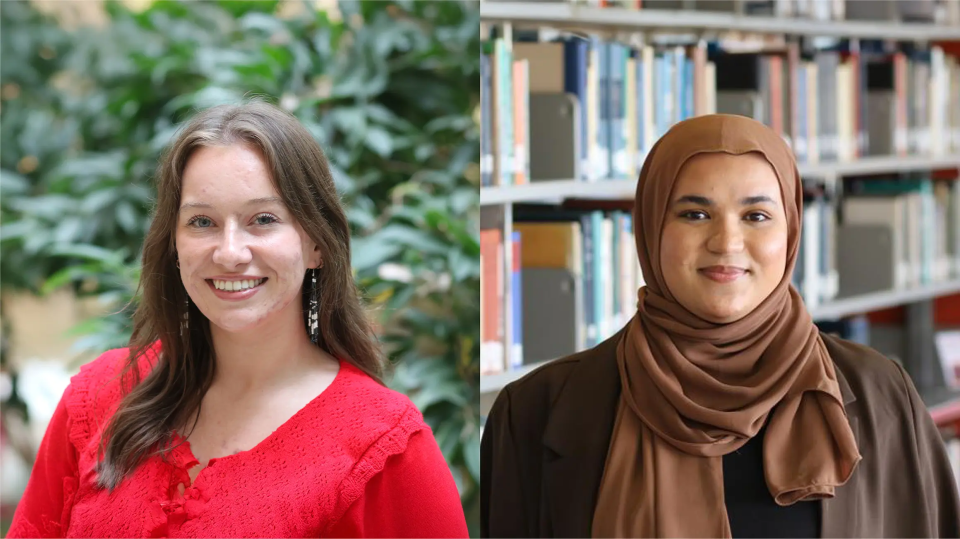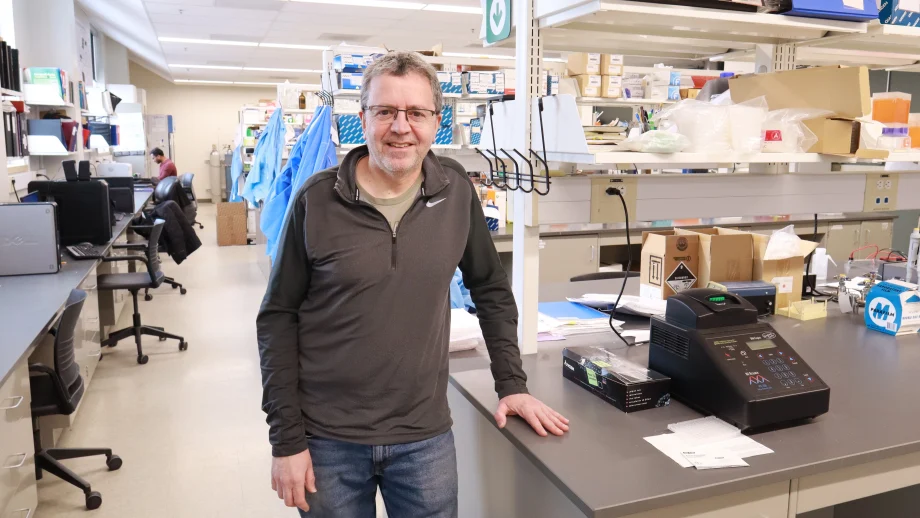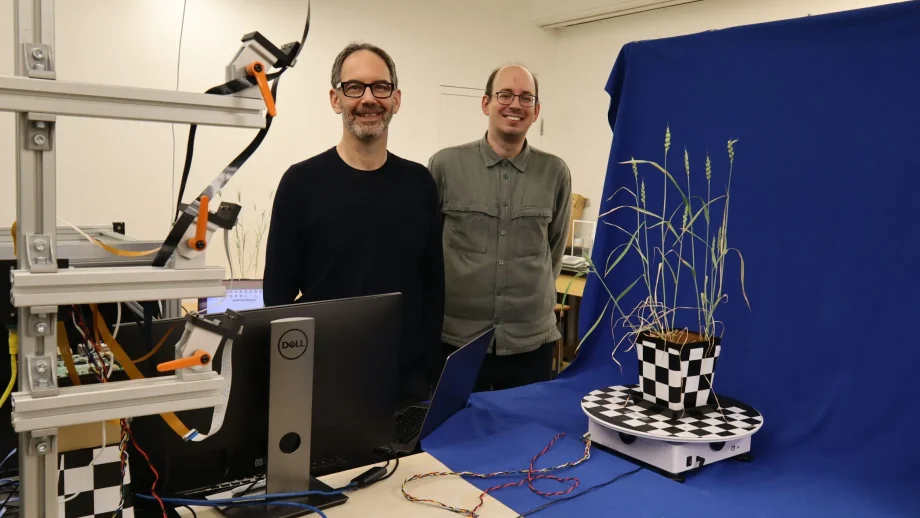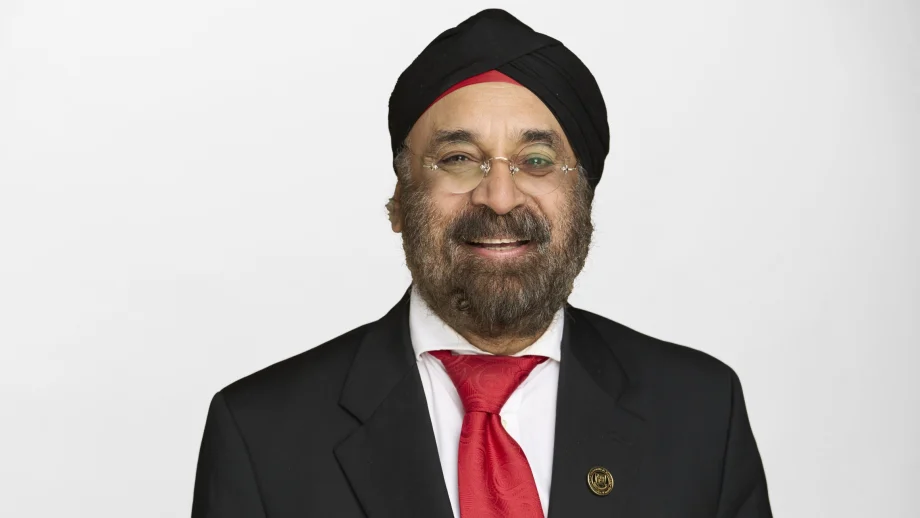In late August, The University of Winnipeg hosted the 2025 Inquiry & Impact Summer event dedicated to showcasing student research from across the sciences and humanities.
Many of the 31 UWinnipeg students awarded Tri-Agency undergraduate research grants through Natural Sciences and Engineering Research Council of Canada (NSERC) Undergraduate Student Research Award (USRA), Social Sciences and Humanities Research Council (SSHRC) Undergraduate Student Research Award (USRA), Canadian Institute of Health Research (CIHR) presented their research.
The event also highlighted the pattern of success for Tri-Agency undergraduate research scholars, including UWinnipeg physicist Dr. Melanie Martin, a keynote speaker. Her research journey began with an NSERC USRA. Now, she is a champion for student research and scientific discovery. Her passion for mentoring and innovation has made a lasting impact on both her field and her students.
My USRAs have helped me develop an understanding and proficiency of research that I wouldn’t have otherwise acquired through any of my typical laboratory course.
Hope Human
Dr. Martin credited her academic career to NSERC. Her first USRA was the beginning to a path of success and a passion for research that took her to Yale University for all levels of her graduate school followed by a Postdoctoral Fellow at Caltech.
Safia Soussi Gounni
Following in Dr. Martin’s Tri-Agency successful tradition, Safia Soussi Gounni, Humanities and Social Sciences Undergraduate Student Research Award scholar, has always been interested in science and history. She is in her final year of her Honours Anthropology degree and is working with bioanthropologist Dr. Yadira Chinique De Armas.
“From a young age I spent hours reading historical books and watching documentaries,” shared Soussi Gounni.
Soussi Gounni is helping Dr. Chinique De Armas analyze the starch from two seeds of Cucurbita spp. (squash) that were found at Canímar Abajo, an archaeological cemetery site in Cuba.
“I am analyzing the starch granules from the seed found at the site as well as starches from dental calculus from the archaeological remains of individuals,” explained Soussi Gounni.
Studying the consumption of cucurbita is part of a bigger picture of reconstructing the life ways of Indigenous peoples in the Antilles after the arrival of the Spaniards in the region.
The project is part of the bigger goals of the Human Osteology and Paleoecology (HOPE) lab and Dr. Chinique Armas to reconstruct the lifeways of the precolonial population in the Antilles.
“Due to continued violence, the culture of the Indigenous populations was, for the most part, lost,” explains Soussi Gounni. “This study as well as much of the research done at the HOPE lab with Dr. Chinique De Armas brings us a better understanding and is a step closer to the decolonization of the disciple of archaeology.”
Hope Human
Indigenous Summer Scholar Hope Human is a fourth-year biology student and a two-year NSERC USRA recipient. For the last two years Human has been working with Dr. Alberto Civetta, whose lab focuses on the evolutionary genetics/genomics of reproductive traits.
“I chose to do a biology degree because I’ve always been interested in the health sciences, and especially in the ways which the human body functions,” shared Human.
Her research with Dr. Civetta focuses on the evolutionary genetics and genomics of reproductive traits. Human is working with Dr. Civetta and looking at identifying unique seminal fluid proteins in Drosophila melanogaster (fruit flies) and attempting to characterize the genes that make those proteins.
“I was initially drawn to this research for the opportunity to work with a model organism like fruit flies – they’re discussed in so many of our biology classes that it felt like a great place to start research.”
Completing her second USRA with Dr. Civetta, she is drawn to the connection of knowledge that happens in the lab and she has gained valuable job experience in her field of study.
“My USRAs have helped me develop an understanding and proficiency of research that I wouldn’t have otherwise acquired through any of my typical laboratory course,” shared Human. “I enjoy seeing concepts that I’ve read about in textbooks come to life here, as well as having the ability to go back-and-forth with Dr. Civetta on knowledge I’ve gained through him or other sources,” said Human.
Both Gounni and Human are planning to go to graduate school in their respective fields.
The University of Winnipeg has a distinguished history of providing high-quality research and training opportunities for both undergraduate and graduate students through various funding and development programs. If you are interested in learning more about these opportunities, please contact Dylan Jones at d.jones@uwinnipeg.ca and/or visit the Resources for Students webpage.





